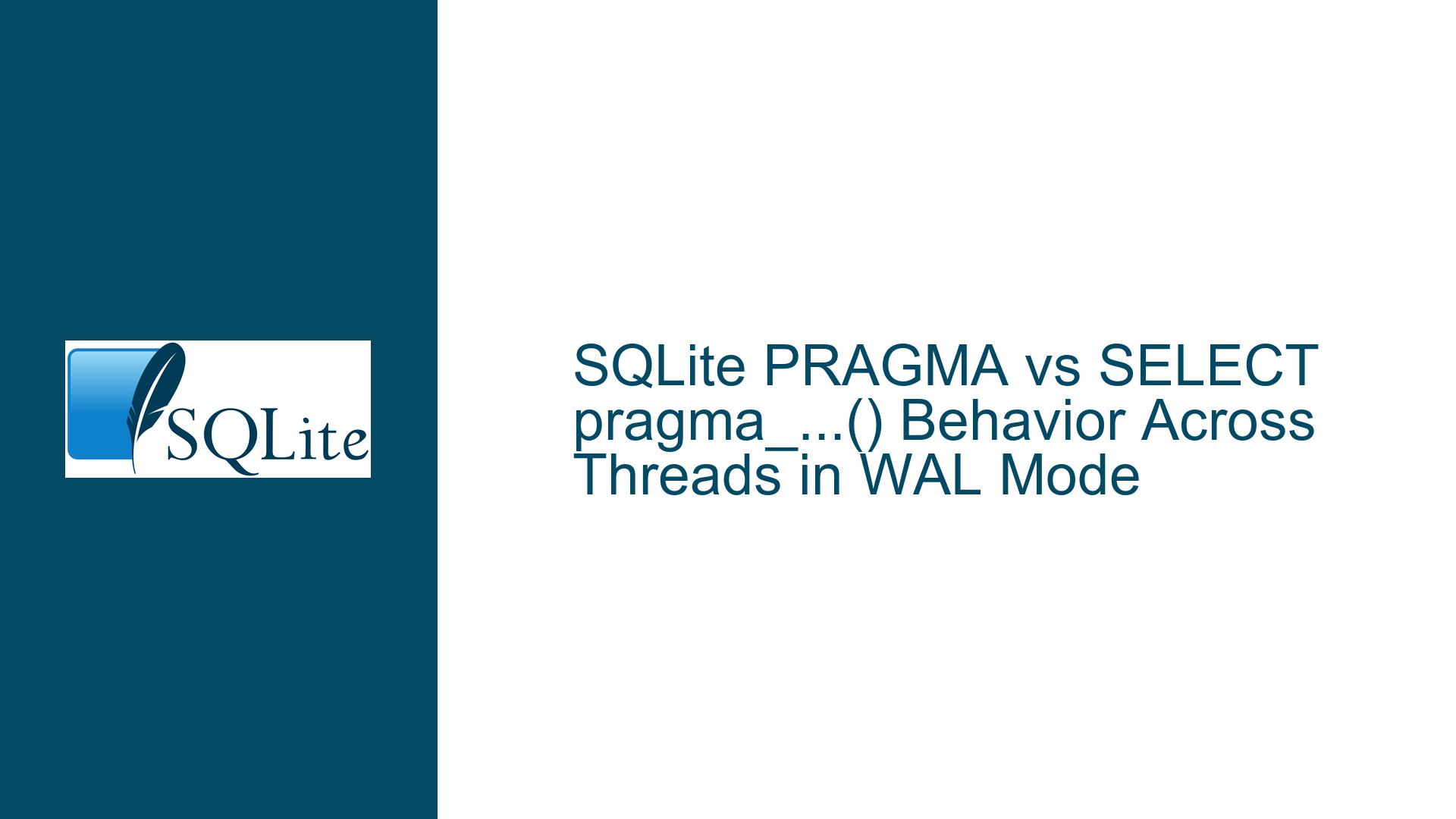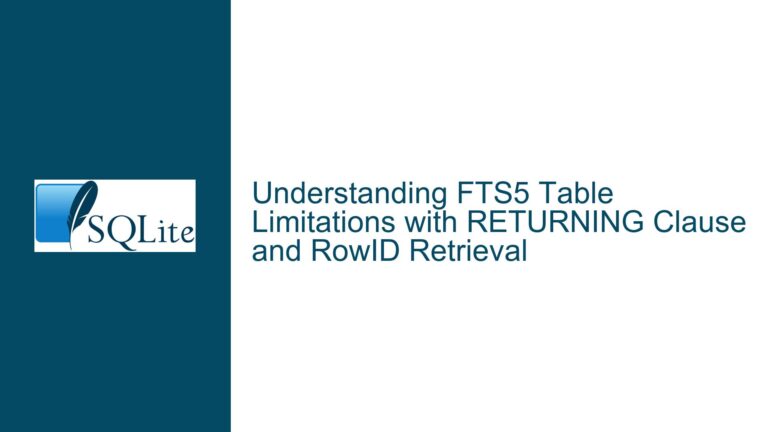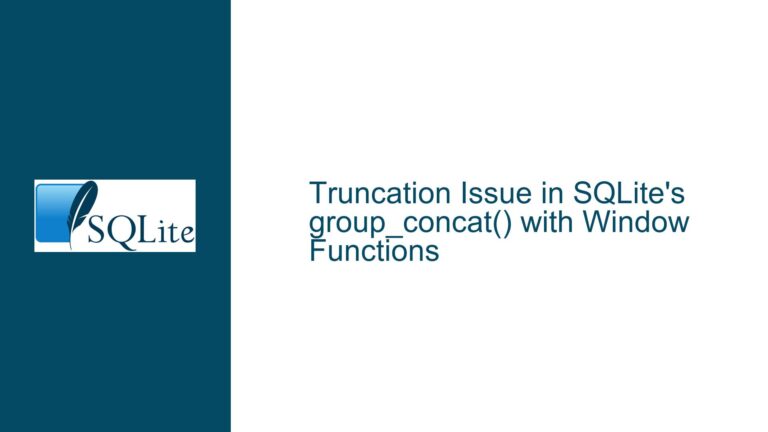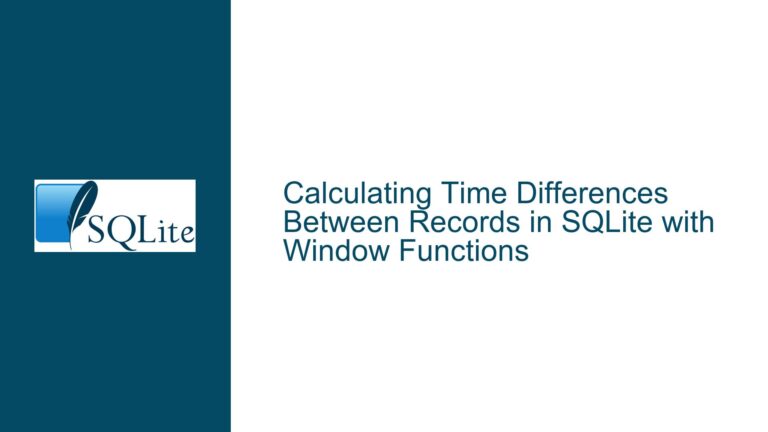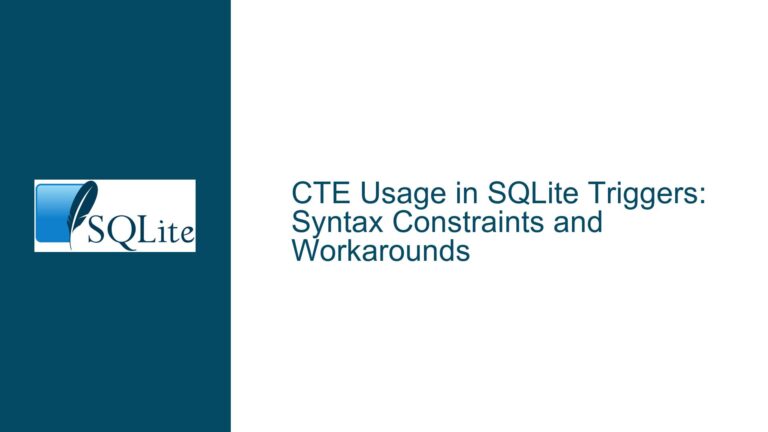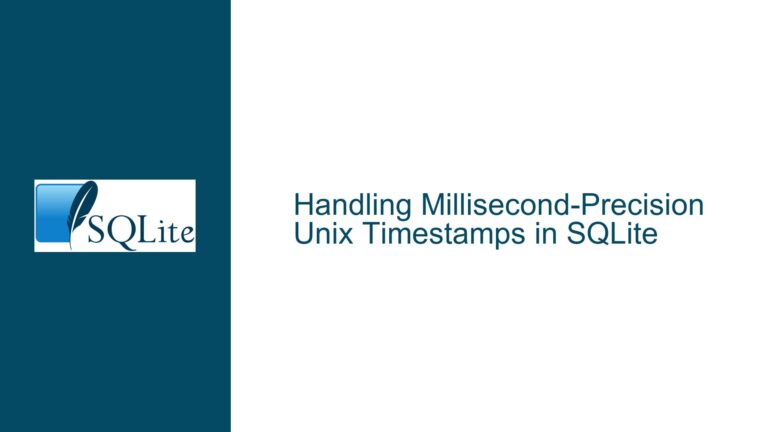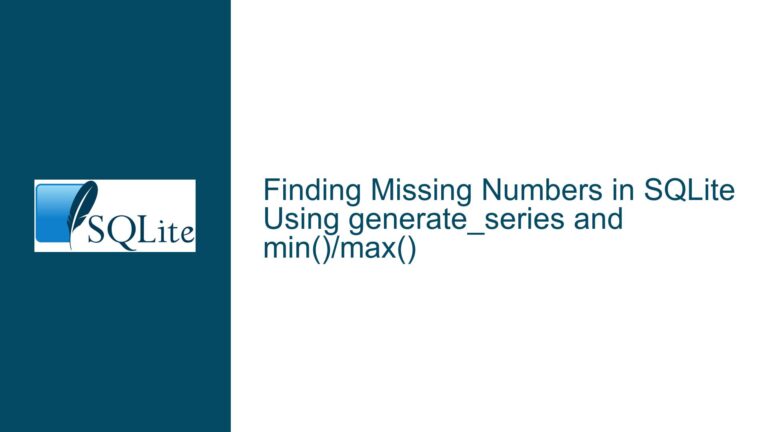SQLite PRAGMA vs SELECT pragma_…() Behavior Across Threads in WAL Mode
Schema Visibility Issues with PRAGMA table_info in Multi-Threaded WAL Mode
When working with SQLite in Write-Ahead Logging (WAL) mode, developers often encounter unexpected behavior when querying schema information across multiple threads or connections. Specifically, the issue arises when one thread or connection modifies the schema (e.g., creates a table) and another thread or connection attempts to query the schema using the PRAGMA table_info command. The schema changes are not immediately visible to the second connection, leading to confusion and potential bugs in applications that rely on real-time schema updates.
This issue is particularly pronounced when using the PRAGMA table_info syntax, whereas the SELECT * FROM pragma_table_info(...) syntax tends to work as expected. The discrepancy between these two methods of querying schema information is rooted in how SQLite handles internal caching and schema versioning in WAL mode. Understanding this behavior is crucial for developers working on multi-threaded applications or those that require frequent schema modifications.
The problem is not limited to multi-threaded scenarios. Even with two separate connections to the same database in WAL mode, the issue persists. This suggests that the behavior is tied to how SQLite manages schema visibility across connections rather than being a threading-specific problem. The issue has been reported in various forms over the years, with discussions dating back to at least 2017, indicating that it is a long-standing nuance of SQLite’s design.
Schema Versioning and Connection Isolation in WAL Mode
The core of the issue lies in how SQLite manages schema versioning and connection isolation in WAL mode. When a database is opened in WAL mode, each connection maintains its own view of the database schema. This view is cached and not automatically updated when changes are made by other connections. The PRAGMA table_info command relies on this cached schema view, which can lead to outdated information being returned if the schema has been modified by another connection.
In contrast, the SELECT * FROM pragma_table_info(...) syntax bypasses the cached schema view and directly queries the current state of the schema. This is why it consistently returns up-to-date information, even when the schema has been modified by another connection. The difference in behavior between these two methods is a direct result of how SQLite implements schema caching and versioning in WAL mode.
Another factor contributing to this issue is the way SQLite handles transaction isolation in WAL mode. In WAL mode, readers do not block writers, and writers do not block readers. This allows for high concurrency but introduces complexities in maintaining a consistent view of the schema across connections. When a connection modifies the schema, other connections may not immediately see these changes due to the way SQLite manages transaction snapshots and schema versioning.
Resolving Schema Visibility Issues with PRAGMA and SELECT pragma_…()
To address the schema visibility issues in WAL mode, developers can adopt several strategies. The most straightforward approach is to use the SELECT * FROM pragma_table_info(...) syntax instead of PRAGMA table_info. This ensures that the query always returns the most up-to-date schema information, regardless of which connection made the changes.
For scenarios where using PRAGMA table_info is necessary, developers can manually refresh the schema cache by executing the PRAGMA schema_version command. This forces the connection to update its cached schema view, ensuring that subsequent PRAGMA table_info commands return accurate information. However, this approach should be used with caution, as it can introduce performance overhead, especially in high-concurrency environments.
Another solution is to use a single connection for all schema-related operations. By centralizing schema modifications and queries within a single connection, developers can avoid the complexities of schema versioning across multiple connections. This approach is particularly effective in applications where schema changes are infrequent or controlled.
For applications that require frequent schema modifications and high concurrency, it may be beneficial to implement a custom schema management layer. This layer can track schema changes and ensure that all connections are aware of the latest schema version. While this approach requires additional development effort, it provides the most robust solution for managing schema visibility in complex applications.
In conclusion, the discrepancy between PRAGMA table_info and SELECT * FROM pragma_table_info(...) in WAL mode is a nuanced aspect of SQLite’s design. By understanding the underlying mechanisms of schema versioning and connection isolation, developers can choose the most appropriate strategy for their specific use case. Whether opting for the SELECT syntax, refreshing the schema cache, centralizing schema operations, or implementing a custom schema management layer, the key is to ensure that all connections have a consistent and up-to-date view of the database schema.
